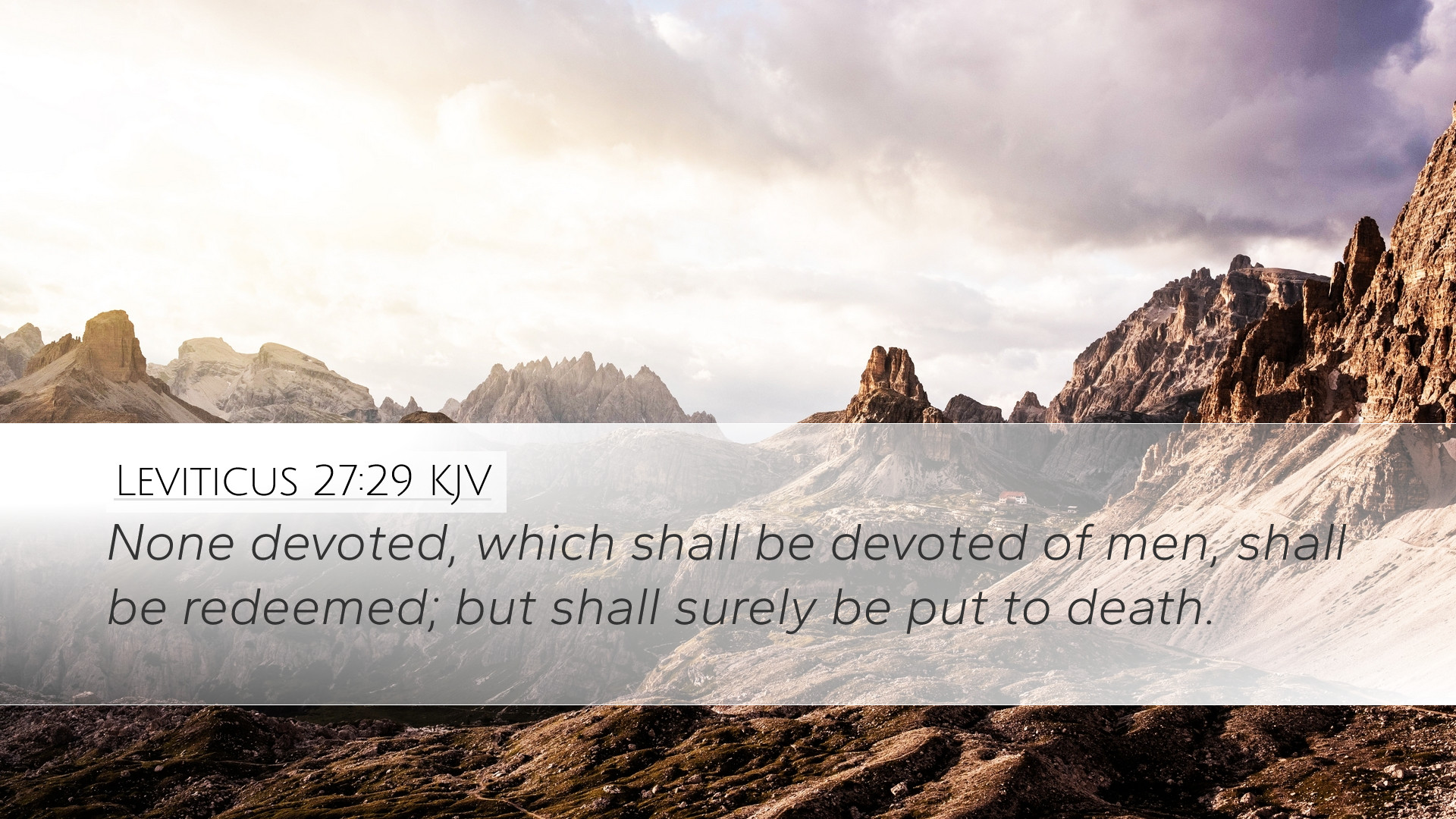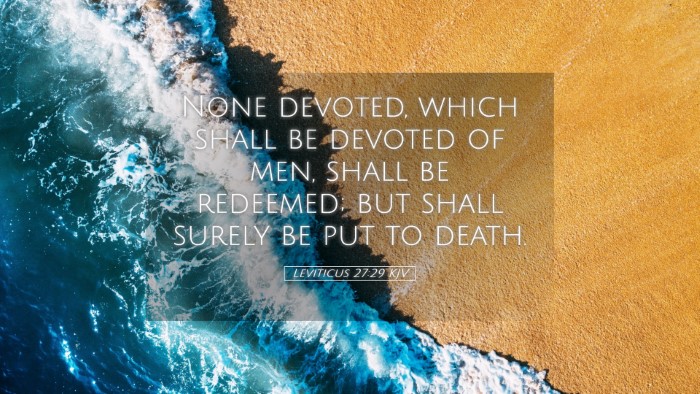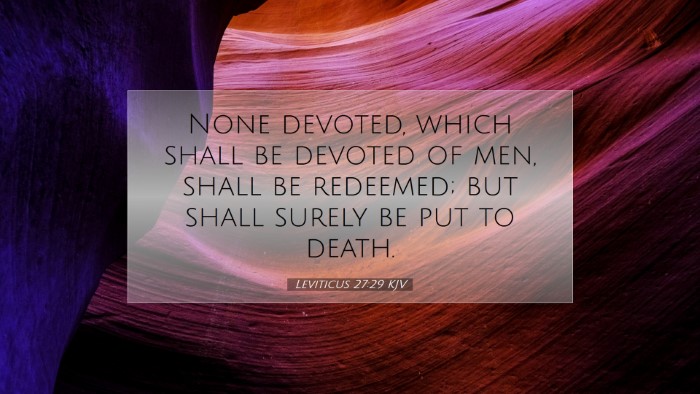Commentary on Leviticus 27:29
Text of Leviticus 27:29: "None devoted, which shall be devoted of men, shall be redeemed; but shall surely be put to death."
Introduction
The verse from Leviticus 27:29 addresses the concept of dedication and devotion, particularly concerning human life dedicated to the Lord. The implications of devotion to God in the ancient Hebrew context are profound and shed light on the seriousness of commitment to divine service and the sacredness of life.
Contextual Background
In the book of Leviticus, God provides the Israelites with laws that govern worship, sacrifices, and various aspects of communal and personal life. This chapter discusses vows and the valuation of various items or individuals dedicated to God’s service. Against this backdrop, the pledge of devotion, especially regarding human life, bears significant weight.
Commentary Insights
Matthew Henry’s Perspective
Matthew Henry, a renowned Bible commentator, emphasizes the gravity of devoting a person to God. He notes that once a person is "devoted," they are essentially set apart and cannot be redeemed, underscoring the finality of such a commitment. Henry remarks that this law aims to deter frivolous vows and ensure that devotions made to God are sincere and serious. He sees this as a principle not only applicable to ancient Israel but also reflective of greater spiritual truths relevant to the believer's relationship with God today.
Albert Barnes’ Analysis
Albert Barnes provides a critical examination of the text, noting that the Hebrew term used for "devoted" (herem) signifies something that is placed under a ban or regarded as accursed. He reflects on the idea that such a dedication is irrevocable, thereby stressing the seriousness of one's vows. Barnes connects the practice with the broader themes of sacrifice and the necessity of complete commitment to God, viewing this command as a protective measure for the community against hazardous oaths that could lead to serious consequences.
Adam Clarke’s Interpretation
Adam Clarke delves into the implications of the law regarding devotion of human life. He posits that this directive serves to maintain the sanctity of life, as the Lord considers human beings as His creations. Clarke elaborates that the context emphasizes that a vow of this magnitude should be treated with utmost reverence. He indicates that this law can also be understood as a reflection of God's laws about justice and the moral order, ensuring that life is not treated lightly, and that those who dedicate themselves to God's service must do so with complete understanding and irrevocable intent.
Theological Implications
The theological underpinning of Leviticus 27:29 highlights not only the severity of human vows but also the gravity with which God regards human life. It serves as a reminder for modern believers regarding the depth of commitment required in their relationship with God. Those who make vows or dedicate themselves to God are called to serious reflection and are urged to understand the weight of their promises.
Application for Pastors and Theologians
This verse challenges pastors and theologians to guide their congregations in understanding the sanctity of their commitments to God. It emphasizes the importance of intentionality in spiritual vows, encouraging believers to think deeply about their dedication and the implications of their promises before God.
Conclusion
Leviticus 27:29 serves as a poignant reminder of the seriousness of devotion to God. By exploring insights from Matthew Henry, Albert Barnes, and Adam Clarke, we uncover the layers of meaning contained within this verse. It invites believers to a deeper level of commitment in their spiritual journey, reminding them of the significance of the promises they make before God.


